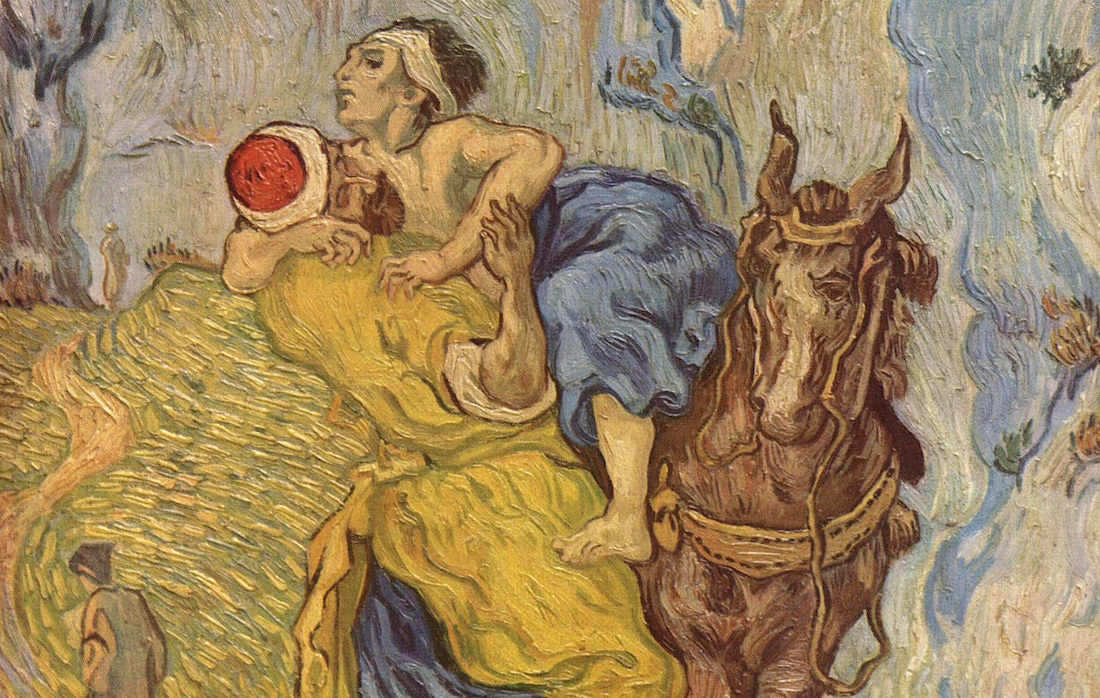
The Fastest Growing Religion in the World? You Might Already be a Member
Think for a moment about a large shopping mall near you. Think about its awesome size, its ceiling to the sky and its escalators climbing to heaven. Think of all those shops inside, with their ultra-slim manikins in the windows giving us a vision of who we could become. Think of the thousands of us entering these places each day, hoping to feel better about our lives through a purchase. We jokingly call this retail therapy. Perhaps it’s something more religious.
The fastest growing religion in the West isn’t Islam, Buddhism, Mormonism or Christianity. It’s Materialism. Money is its god, the shopping mall is its temple, and the effects of this religion touch us all.
But there’s a remedy.
How Materialistic Are You?

In his book [amazon_link id=”0091900115″ target=”_blank” ]Affluenza[/amazon_link], psychologist Oliver James gives a checklist to discover how infected you and I are with the ‘virus’ of materialism. Here’s the test. Take a moment to answer Yes or No to each statement:
- I would like to be a very wealthy person
- I would like to have my name known by many people
- I would like to successfully hide the signs of aging
- I would like to be admired by many people
- I would like to have people comment often about how attractive I look
- I like to keep up with fashions in hair and clothing
- I would like to have my name appear frequently in the media
- I often compare what I own with what others own
- Possessions can be just as important as people
- Shopping or thinking about what to buy greatly preoccupies me
- If a friend can’t help me get ahead in life, I usually end the friendship
- I’m less concerned with what work I do than with what I get paid for it
- I admire people who own expensive homes, cars and clothes
- My life would be better if I owned certain things I don’t have now
- The things I own will say a lot about how well I’ve done in life
- I want a lot of luxury in my life
“If you answered Yes to any of the questions,” James says, “then you have, like most people in the English-speaking world, contracted the Virus. The more you answered Yes, the more infected you are and the greater your likelihood of becoming emotionally distressed.”
Confronting, huh?
Jesus and Shopping Mall Religion

When Jesus teaches on money and material possessions in his Sermon on the Mount, he offers no budgeting tips or encouragements to save. Instead, he tackles their religious heart. He diagnosed Shopping Mall Religion two millennia before anyone else and gives a surprisingly timeless and powerfully antidote.
An Alternative God
Everyone has a god. That god is whatever we trust in to give us security, identity, and meaning in our lives, whether it’s a supernatural being, or family, or success, or scientific progress. There were many alternative deities in Jesus’ day but interestingly, he mentions only one of them by name. It isn’t Minerva, Mars, or Mercury. It’s Money.
“No one can serve two masters,” he says. “Either you will hate the one and love the other, or you will be devoted to the one and despise the other. You cannot serve both God and money.” And this god has its own spirituality.
An Alternative Spirituality
Every religion has a set of practices which help shape believers into the image of their deity. The religion of materialism has its own spirituality and Jesus reveals its primary practice: treasure storing. “Don’t store up treasures here on earth,” he says, “where moths eat them and rust destroys them, and where thieves break in and steal.”
Think about that shopping mall again. Think about the advertisements on its speakers booming like sermons. “Feeling empty?” they ask. “There’s a holy feast in our food hall.” “Feeling unfulfilled? We have good news! This new dress will pick you up. This new cologne will make you attractive. Visit the Levi’s chapel right now for a new, reborn you.”
But here’s the problem: Money is a fickle god, materialism is a flaky religion, and the treasures they bring tend to rust, rot, or get lost, requiring constant replacement. Food, clothing and other things then become our preoccupation.
Alternative Change
Whatever we centre our lives on, whether a job, sport, political cause, or something else, soon starts shaping our personalities. We start to become like what we worship.
Oliver James found that when we centre our lives on money, possessions and personal appearance, we suffer increased levels of depression, anxiety, and relationship breakdown. He found that the more materialistic we are, the less loyal, helpful, and joyful we become.
Jesus predicted the same a couple of millennia before James. Money cares little for its subjects and when we bow to it we begin to die inside: losing the light in our eyes and growing anxious and worried. The pursuit of transient treasures ends in dis-ease.
There’s a Cure for That

So we visit our large shopping mall each week with its shops like chapels and its manikins like icons, listen to its advertisement-sermons and gaze at its stained glass window signs looking for new life. And over time it isn’t life we find but anxiety. What’s the remedy?
God
In his Sermon, Jesus counters Shopping Mall Religion point by point, starting with the nature of God. The real God of the cosmos looks out for little people, loves his enemies and is generous with his gifts. This God, Jesus says, is our Father – a Father who is so close he knows what we need before we ask it, and who is active right now in our lives.
Spirituality
The practices associated with Father-worship then also look different to our alternative god, because of who God is, what God does, and what we receive in this Father-child relationship. Here the practices are quiet generosity, faithful prayer and secret fasting, alongside other acts of reconciliation, fidelity, truth telling and grace giving. In short, “seek first God’s kingdom and his righteousness” Jesus says, and everything else will fall into place.
Change
In his Sermon, Jesus shows the kind of transformation that happens when we orbit around the Father. We become people of reconciliation, fidelity, truth, and grace, growing into integrity and away from critical judgement. As we follow our Father we become more considerate of others, more radical in our love, and more “perfect as your heavenly Father is perfect.”
And we become less anxious. “Therefore I tell you,” Jesus says, “do not worry about your life, what you will eat or drink; or about your body, what you will wear.” Why? Because our Father knows what we need and can be trusted to provide it. When he is central, we can rest.
***
I saw a picture of a shopping mall advertisement the other day. The headline read, “Be born again.” It wasn’t an ad for jeans this time, but for a plastic surgeon on level 3 of a shopping mall. Sometimes a pair of Levi’s just won’t cut it.
Yes, when Jesus teaches on money, he offers no budgeting tips or encouragements to save—just an exposé of its religious heart. Money is necessary, and possessions are fine. But neither can save an empty soul.
Learn More
- I explore this topic in more depth in the Winter 2016 edition of Preach Magazine
- My Resilient book, DVD and audiobook has even more
Talk to Me
Got something to add or a question to ask? Leave a comment below now or call me using the ‘Send Voicemail’ button on the right.





Nils von Kalm
Hi Sheridan, thanks for this article and for your writing. I get a lot out of your work.
I am just wondering if you know of any research that says that more people are becoming materialistic. I’m a writer too and I like to research these things in showing how Jesus is relevant to all of life.
Thanks,
Nils
Sheridan Voysey
Hi Nils. It would depend which country we’re talking about. Clive Hamilton’s book Affluenza is a helpful primer on the Australian scene – follow his footnotes for sources. Oliver James’ The Selfish Capitalist is good for the UK and broader. A couple of older books that may have good US sources are Ron Sider’s Rich Christians in an Age of Hunger (new ed), and The Scandal of the Evangelical Conscience (although primarily looking at the Christian scene he compares it to broader societal trends, if I remember correctly).
MelMenziesMerrilynWilliams
Hi Sheridan,
Great piece you’ve written there. However, here in the UK, my feeling is that the god of the British is tolerance. Everything and everyone is expected to bow down to worship at the altar of tolerance. We must all accept the Rights of even the smallest percentage of the population. Thus my right (with a small r) to be a wife and my husband a husband has to accede to the Rights of same-sex couples to be a wife and husband. The rights of a child to have a mother and father are brushed aside in favour of the Rights of same-sex couples to parent a child by adoption or surrogacy. And so it goes on. Decades ago I read an article about an incestuous relationship being one of ‘love’ and I wonder how long it will be before this, too, will be added to the god of tolerance? As I said to Rev Richard Bewes, a good friend since I worked for Jubilate Hymns, and once rector of All Saints, Langham Place in London: the internet is a Tower of Babel. We are all omniscient (all-knowing via Google) and omnipresent (everywhere in the world). Or so we think.
You may recall we met once at CRT at Swanwick when I was Chairman of the Association of Christian Writers. I’m currently writing, in my latest book, Picked for a Purpose, about how we might become more ‘considerate of others, and more radical in our love’ (to quote you) when unequally yoked (as I was years ago). Would love to have discussed this with verbally, but being a bit of a geek, I’m not sure how to go about setting up my microphone.
Sheridan Voysey
Oh yes, tolerance is certainly a British idol. I’d add personal freedom as another god the western world bows to. Money isn’t the only rival to the Throne. But it’s a powerful and pervasive one.
Thanks for the comment, Mel. Hope ideas for the new book are flowing!